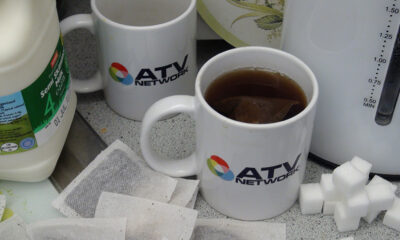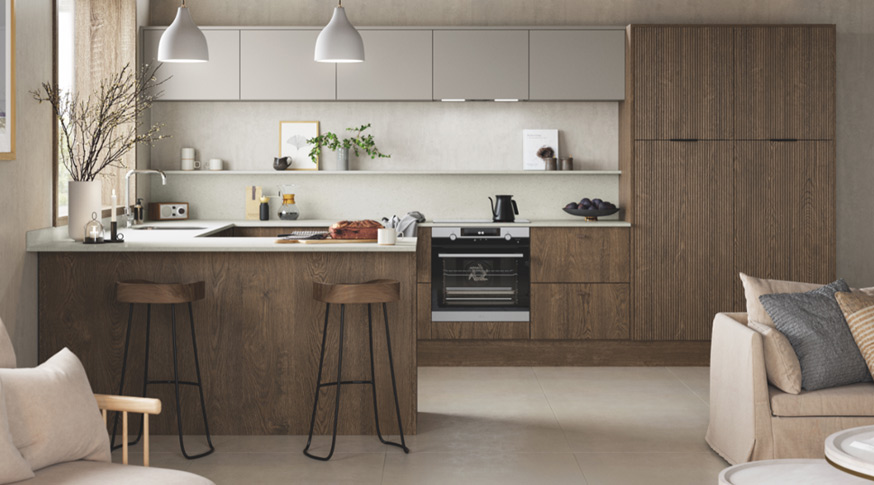From fixing leaky faucets to upgrading lighting, these tips can save – the experts say – around £350 each year…
In a time of rising living costs, experts have unveiled a series of simple yet impactful DIY fixes that could put up to £350 back into your annual budget. Bathroom and kitchen experts, Plumbworld, have revealed how straightforward DIY fixes in your bathroom and kitchen can accumulate £350 in savings annually. These tasks are easy to handle on your own, without the need for professional help.
Eleanor Potter, the Head of Strategic Sourcing at Plumbworld:
“The charm of these DIY tips really lies in their sheer simplicity and the fact that they don’t demand any special skills. It’s about embracing resourcefulness, picking up some fundamental techniques, and putting them into practice. This approach has a wonderful way of transforming tasks that might initially seem daunting into manageable and even rewarding projects. Each of these fixes represents a practical step that any one of us can take, and the immediate savings are only the start.”
1. Fixing Leaky Faucets and Running Toilets
A persistently dripping faucet or a running toilet isn’t just a nuisance; it’s a drain on your wallet. A leaky faucet can waste as much as 5,500 liters of water annually, leading to unnecessary water bills. By fixing these issues yourself, you can save approximately £30 per year.
These repairs are usually a matter of replacing washers or seals and can be done with basic tools like wrenches and screwdrivers.
2. Regular Maintenance of Appliances
Your appliances, such as dishwashers and washing machines, are workhorses of the home. Neglecting their maintenance can lead to costly breakdowns. Simple actions like cleaning filters, checking hoses, and descaling can prevent these issues.
Undertaking this maintenance yourself can lead to savings of about £50 each year, avoiding professional repair costs and keeping your appliances running efficiently.
3. Upgrading to Water-Saving Fixtures
Water efficiency is key in reducing utility bills. By installing low-flow showerheads and faucet aerators, you can significantly cut down water usage without sacrificing performance. This simple yet impactful upgrade can be completed in minutes and can save you around £25 annually in reduced water bills, making it both an eco-friendly and cost-effective choice.
4. Sealing and Insulating Pipes
Insulating your pipes, especially in colder regions, is crucial for energy conservation. Uninsulated pipes can lose heat rapidly, making your heating system work harder. By wrapping your pipes with foam insulation, a task you can easily do yourself, you could save about £55 each year on heating bills. This also helps in preventing pipes from freezing and bursting during winter, avoiding expensive emergency repairs.
5. DIY Caulking in Bathrooms and Kitchens
Moisture control is vital in areas like bathrooms and kitchens. Old, cracked caulking can lead to water seeping into walls and floors, causing damage and mold. By reapplying caulk around your sinks, bathtubs, and showers, you can prevent these problems. This simple DIY task, requiring just a tube of caulk and a caulking gun, can save you up to £100 annually by avoiding repair and remediation costs.
6. Energy-efficient Lighting
Lighting can account for a significant portion of your electricity bill. Replacing incandescent bulbs with LED options can reduce energy consumption and the frequency of replacements. LEDs use about 75% less energy and last 25 times longer than traditional bulbs. This switch can save you approximately £3 per bulb each year, adding up to around £30 for an average household with 10 bulbs replaced.
7. Installing Programmable Thermostats
Heating and cooling your home can be much more efficient with a programmable thermostat. By setting schedules that align with your lifestyle, you can avoid heating or cooling an empty house. This simple change can cut your energy bills by up to £60 annually. Most programmable thermostats are user-friendly, and with basic tools, you can install them without professional help.
Eleanor Potter:
“There’s also the advantage of getting to know the inner workings of our own homes and having the ability to care for them ourselves. It’s about cultivating self-reliance and resourcefulness. Especially now, in an era of increased economic challenges, these skills become invaluable, transforming potential obstacles into opportunities for both personal and home enhancement.
“I like to think of these tasks not as mere chores, but as meaningful investments in our homes and, by extension, our overall wellbeing. It’s the little steps, consistently taken, that build up to significant long-term benefits. So, let’s roll up our sleeves and see these activities as more than just fixes – they’re small but powerful ways to make a positive impact in our daily lives.”











